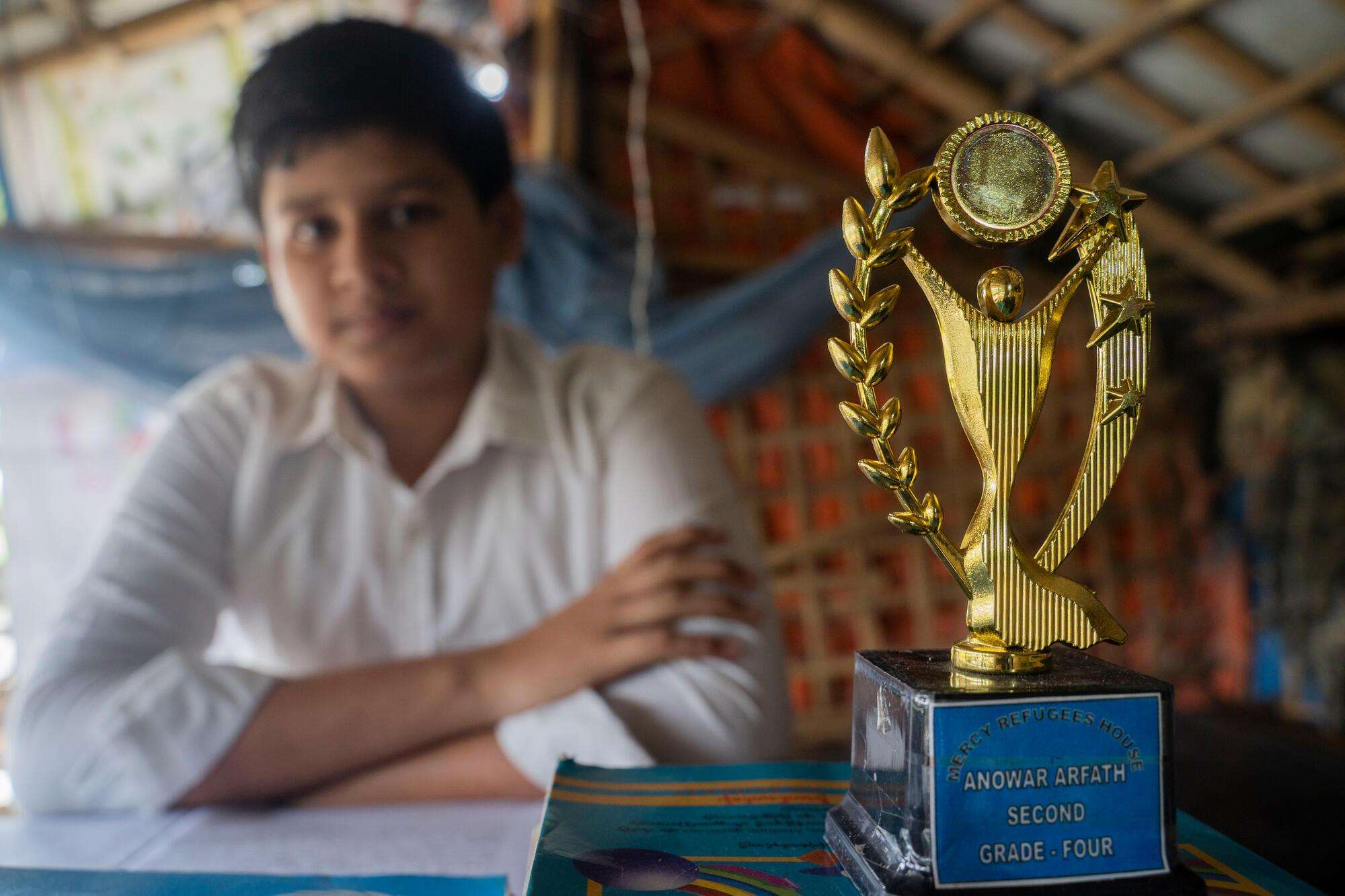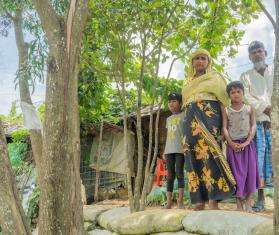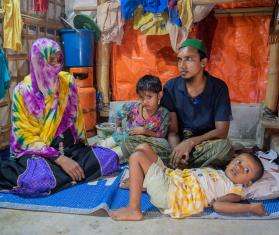On August 25, 2017, the Rohingya people in Myanmar were the targets of a large-scale campaign of merciless violence. More than 700,000 people fled for their lives across the border into Bangladesh in a matter of weeks, joining thousands who had fled previous attacks. Today, nearly one million Rohingya still live in crowded, unsafe, and unsanitary conditions in what is now the largest refugee camp in the world in Cox's Bazar.
To mark five years of continued displacement with no solution in sight, Doctors Without Borders/Médecins Sans Frontières (MSF) gathered testimonies from people of different generations with different concerns and fears: Tayeba, a mother of five-year-old twins; 15-year-old Anwar, who misses school and wants to become a doctor; Nabi and Nasima, the parents of young children; Hashimullah, a 45-year-old former businessman; and 65-year-old Mohamed, who worked in the Myanmar government for decades before he and his people were stripped of their citizenship.
This is Anwar’s story.
My name is Anwar. I am a student from Myanmar. I’m 15 years old, almost 16. We escaped from our neighborhood in Myanmar and now we live in the Jamtoli refugee camp in Bangladesh.
I remember when I ran away from Myanmar with my family. It was one afternoon when the army attacked our neighborhood, and we had to run to a nearby area. When they torched our houses, we had to run further. We survived, but many of our relatives and neighbors were murdered.
We traveled a long way to seek safety. I remember it was almost 12 days of running and walking before we reached Bangladesh. It was dangerous: we walked unfamiliar roads, climbed hills, and even crossed water. We saw a lot of dead bodies along the way. When we first arrived in Bangladesh, we stayed with our relatives and neighbors, and now we live in this shelter in the camp.
I was a student at school when we escaped, so when I came here my education was interrupted. I was a good student with high grades. I like learning, but now I can’t study or get the books I need.
Only primary-level education is available in the Rohingya refugee camps, nothing further. Our education is stuck where we left it. The only chance for learning is when teachers in our community gather up the Rohingya children to teach them. They teach us wholeheartedly.
Some of my friends miss classes because they are responsible for supporting their families. I feel for them. If they become educated, they can teach others and create a ripple. Only then will our community develop, and our generation will do good.
My dream was to become a doctor, to be useful to the community. Since my childhood, I have seen doctors helping people and doing their best. I understand now that the dream might never come true. Still, I feel happy when I go to classes and meet my friends. We try to be happy while studying and playing.
Our life in the camp is not easy. The stipend my father earns is not enough to support my family. And sometimes when I come back from school at night, I feel unsafe.
I would like to address young people like me around the world. Please use the opportunity you have and learn as much as you can. My fellow Rohingya refugees and I do not have such an opportunity.




